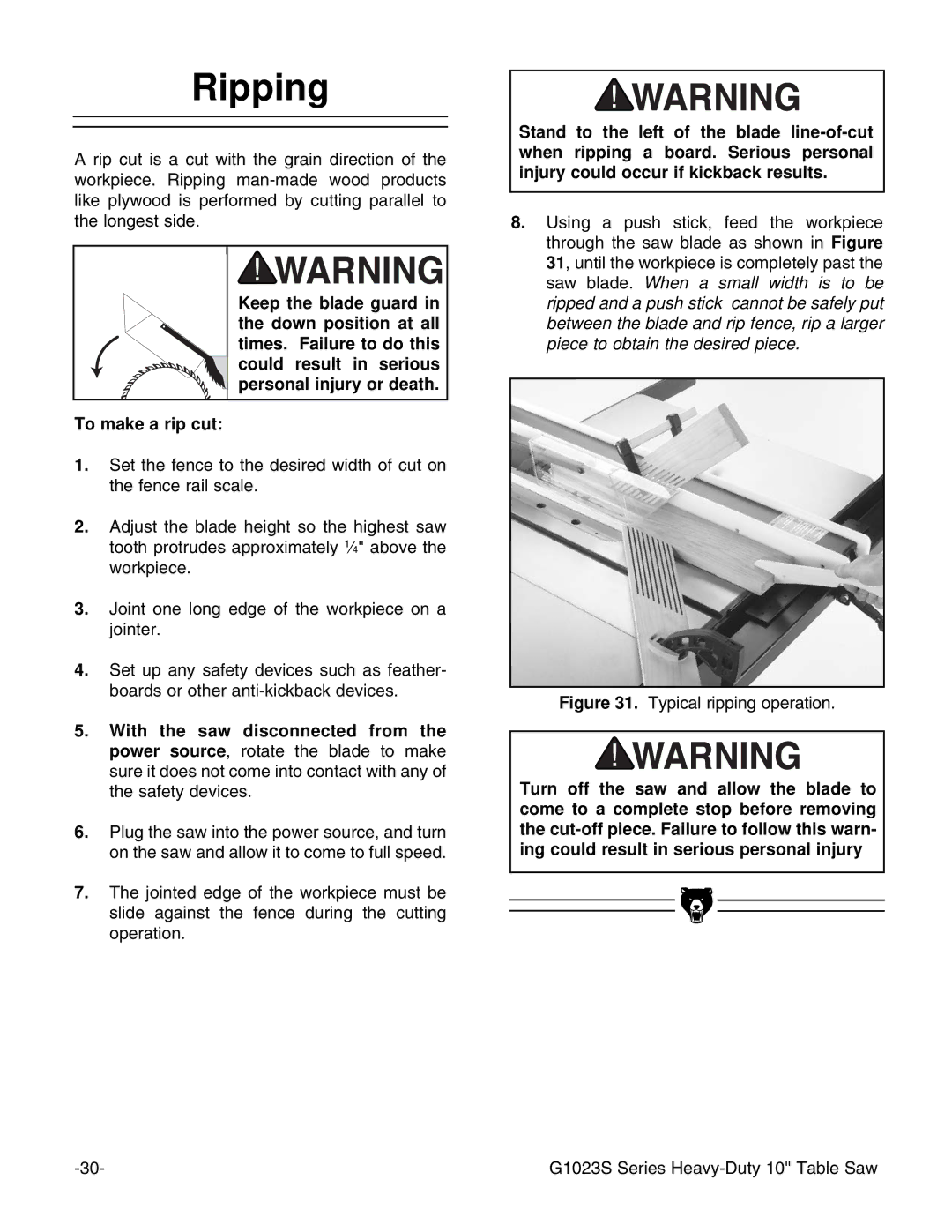
Ripping
A rip cut is a cut with the grain direction of the workpiece. Ripping
Keep the blade guard in the down position at all times. Failure to do this could result in serious personal injury or death.
To make a rip cut:
1.Set the fence to the desired width of cut on the fence rail scale.
2.Adjust the blade height so the highest saw tooth protrudes approximately 1Ú4" above the workpiece.
3.Joint one long edge of the workpiece on a jointer.
4.Set up any safety devices such as feather- boards or other
5.With the saw disconnected from the power source, rotate the blade to make sure it does not come into contact with any of the safety devices.
6.Plug the saw into the power source, and turn on the saw and allow it to come to full speed.
7.The jointed edge of the workpiece must be slide against the fence during the cutting operation.
Stand to the left of the blade
8.Using a push stick, feed the workpiece through the saw blade as shown in Figure 31, until the workpiece is completely past the saw blade. When a small width is to be ripped and a push stick cannot be safely put between the blade and rip fence, rip a larger piece to obtain the desired piece.
Figure 31. Typical ripping operation.
Turn off the saw and allow the blade to come to a complete stop before removing the
G1023S Series |
